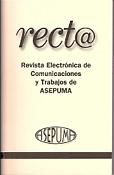Technical efficiency of Iberian port authorities by specialization: A DEA metafrontier approach
DOI:
https://doi.org/10.24310/recta.18.1.2017.19914Palabras clave:
Data envelopment analysis (DEA), Metafrontier, Non-homogeneous technology, Technical efficiency, Technological gap ratio (TGR), portsResumen
The importance of ports as links in the maritime transport and their weight in the global economic development is unquestionable. Identifying the most efficient ports and the best practices is basic for ports’ managers, customers and authorities. However, ports are not homogeneous units because they are specialised in terms of traffic and services. In consequence, the aim of this paper is to assess and compare the technical efficiency of the 33 Iberian port authorities taking into account their specialisation in the traffic of solid bulk, liquid bulk and general commodities. To do this, we use a robust and reliable methodology such as the metafrontier model. Moreover, the technological gap ratio concept is used to estimate the proximity of the production frontier of each group of ports to the metafrontier. The achieved results evidence that Iberian port authorities are quite efficient in general terms, but the ports specialised in the traffic of liquid bulks have the best performance. The traffic of products such as oil and its derivatives requires special infrastructures and proximity to certain industries, making them ‘captive’ traffics. This fact provides certain ports a competitive advantage that identifies them as the most efficient ports.
Descargas
Publicación Facts
Perfil de revisores N/D
Información adicional autores
Indexado: {$indexList}
-
Indexado en
- Sociedad Académica/Grupo
- N/D
- Editora:
- UMA Editorial. Universidad de Málaga
Descargas
Publicado
Cómo citar
Número
Sección
Licencia

Esta obra está bajo una licencia internacional Creative Commons Atribución-NoComercial 4.0.









